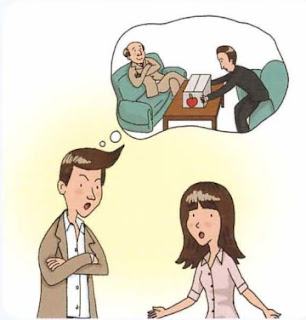
-(으)ㄹ 리가 없다 is used when the speaker knows from past experience that the preceding content is clearly not true or that it cannot be believed. It is also used in the form -(으)ㄹ 리 없다, in which 가 is deleted.
가: 김상선 의원이 구속됐다면서요? 모 기 업으로부터 거액의 돈을 뇌물로 받았다고 하던데요.
Is it true that Congressman Kim Sangseon has been arrested? I heard that he received a large amount of money as a bribe from some company.
나: 김 의원은 자기는 모르는 일이라고 계속 주장한대요. 사과 상자에 있던 게 사과인 줄 알았다고 한다나 봐요.
Congressman Kim is contending that he knows nothing about it. Apparently, he’s claiming that he thought the box of apples actually contained apples.
가: 그걸 김 의원이 몰랐을 리가 없죠. 당연히 사과 상자 안에 돈이 있는 줄 알고 받았을 거예요.
There’s no way he couldn’t have known that. I bet he knew there was money in the apple box when he received it.
나: 이러니 국민들이 정치하는 사람이나 기업하는 사람들을 좋게 볼 리가 없는 거예요.
It’s due to things like this that citizens can’t view politicians or business people in a favorable light.
 • 그 친구가 나에 대해서 그런 말을 했을 리가 없어요.
• 그 친구가 나에 대해서 그런 말을 했을 리가 없어요.
There is no way that guy could have said that about me.
• 사람들 앞에서 무시를 당하면 기분이 좋을 리가 없지요.
It never feels good to be ignored in front of a group of people.
• 좋은 재료를 가지고 정성껏 요리하면 음식이 맛이 없을 리 없습니다.
It’s impossible for food to taste bad if you use good ingredients and cook with all your heart.
The word 없다 can be replaced with 있다 with no major change in meaning, but in this case, it is used in the form -(으)ㄹ 리가 있어요? or -(으)ㄹ 리가 있겠어요?
• 그 친구가 나에 대해서 그런 말을 했을 리가 있어?
• 사람들 앞에서 무시를 당하면 기분이 좋을 리가 있겠어요?
>> You can click on the title of each grammar below to see other grammar which also expresses ‘Supposition and Possibility’
2. -(느)ㄴ다는 듯이
3. -는 듯하다
4. -(으)ㄹ 게 뻔하다
5. -(으)ㄹ 법하다
6. -(으)ㄹ 리가없다
7. -기 십상이다
>> Full of ‘Korean grammar in use – Intermediate’: Click here
>> Full of ‘Korean grammar in use – Advanced’: Click here
>> Follow my page to get Korean lessons: Say Hi Korean
